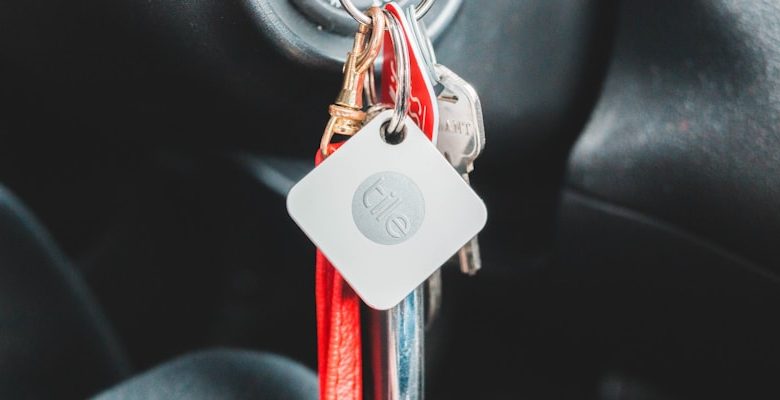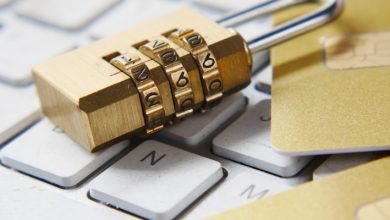How to Protect Your Private Keys from Theft

- Understanding the importance of private keys in cryptocurrency security
- Best practices for storing your private keys securely
- The risks of keeping your private keys on online platforms
- How hardware wallets can help protect your private keys
- Steps to take if your private keys are compromised
- Ensuring the safety of your private keys in a digital world
Understanding the importance of private keys in cryptocurrency security
Understanding the significance of private keys in cryptocurrency security is crucial for safeguarding your digital assets. Private keys are essentially the passwords that grant you access to your cryptocurrency holdings. They are long strings of alphanumeric characters that serve as a unique identifier for your wallet. Without your private key, you cannot access or transfer your funds, making it essential to keep it secure at all times.
Private keys are used to sign transactions on the blockchain, proving that you are the rightful owner of the cryptocurrency you are trying to send. If someone gains access to your private key, they can easily take control of your funds and transfer them to their own wallet. This is why it is vital to keep your private key safe from theft and unauthorized access.
There are various ways to protect your private key, such as using hardware wallets, encrypted storage devices, or secure password managers. It is also important to avoid storing your private key on any online platform or sharing it with anyone. By taking the necessary precautions to secure your private key, you can prevent potential theft and ensure the safety of your cryptocurrency investments.
Best practices for storing your private keys securely
When it comes to protecting your private keys from theft, following best practices for storing them securely is crucial. Here are some tips to help you keep your private keys safe:
- Store your private keys offline in a secure location, such as a safe or safety deposit box.
- Avoid storing your private keys on devices that are connected to the internet, as this increases the risk of them being compromised.
- Consider using a hardware wallet to store your private keys, as these devices are specifically designed to keep your keys secure.
- Make sure to create backups of your private keys and store them in separate locations to avoid losing access to your funds.
- Use strong passwords to encrypt your private keys and consider using a password manager to help you keep track of them.
By following these best practices, you can help protect your private keys from theft and ensure that your cryptocurrency investments remain secure.
The risks of keeping your private keys on online platforms
Keeping your private keys on online platforms can expose you to various risks that could potentially lead to theft of your valuable digital assets. Storing your private keys on online platforms means that they are vulnerable to hacking and phishing attacks, as well as unauthorized access by third parties. This is because online platforms are often targeted by cybercriminals who are constantly looking for ways to exploit vulnerabilities and steal sensitive information.
Furthermore, online platforms may not have the same level of security measures in place as offline storage options, such as hardware wallets or paper wallets. This means that your private keys are at a higher risk of being compromised if they are stored online. In addition, online platforms are more susceptible to technical glitches and system failures, which could result in the loss of your private keys.
It is crucial to understand the risks associated with keeping your private keys on online platforms and take the necessary precautions to protect them. By using secure offline storage options and following best practices for storing private keys, you can minimize the risk of theft and ensure that your digital assets remain safe and secure.
How hardware wallets can help protect your private keys
One effective way to protect your private keys from theft is by using hardware wallets. Hardware wallets are physical devices that store your private keys offline, making them less vulnerable to hacking or unauthorized access. By keeping your private keys offline, hardware wallets provide an extra layer of security that can help prevent unauthorized access to your cryptocurrency funds.
Hardware wallets typically come with built-in security features such as PIN protection, encryption, and backup and recovery options. These features help ensure that even if your hardware wallet is lost or stolen, your private keys remain secure and can be easily recovered. Additionally, many hardware wallets are compatible with popular cryptocurrency wallets and platforms, making them easy to integrate into your existing security setup.
Using a hardware wallet is a simple and effective way to protect your private keys from theft. By keeping your private keys offline and utilizing the security features of a hardware wallet, you can help ensure that your cryptocurrency funds remain safe and secure. Whether you are a novice or experienced cryptocurrency user, a hardware wallet can provide peace of mind knowing that your private keys are protected from potential threats.
Steps to take if your private keys are compromised
If your private keys are compromised, it is crucial to act swiftly to prevent any unauthorized access to your sensitive information. Here are some steps you can take to mitigate the damage and secure your assets:
– **Change your compromised keys**: The first step is to generate new private keys to replace the compromised ones. This will ensure that any unauthorized access is revoked, and your assets are secure. Make sure to update all relevant accounts and platforms with the new keys.
– **Monitor your accounts**: Keep a close eye on all your accounts and transactions to detect any suspicious activity. If you notice any unauthorized transactions or changes, report them immediately to the relevant authorities.
– **Enable two-factor authentication**: Adding an extra layer of security, such as two-factor authentication, can help protect your accounts even if your private keys are compromised. This will require a second form of verification before granting access to your accounts.
– **Contact your wallet provider**: If your private keys are compromised, it is essential to inform your wallet provider immediately. They may be able to assist you in securing your assets and preventing further unauthorized access.
– **Educate yourself**: Take this opportunity to educate yourself on best practices for securing your private keys. Learn about encryption, password management, and other security measures to enhance the protection of your assets.
By taking these steps, you can minimize the risks associated with compromised private keys and safeguard your digital assets effectively. Remember to stay vigilant and proactive in protecting your sensitive information from potential threats.
Ensuring the safety of your private keys in a digital world
When it comes to safeguarding your private keys in today’s digital landscape, there are several important measures you can take to ensure their safety.
One crucial step is to use a reputable digital wallet to store your private keys securely. By choosing a trusted provider, you can minimize the risk of theft and unauthorized access to your keys.
Additionally, it is essential to create strong, unique passwords for your digital wallet and any accounts associated with your private keys. Avoid using easily guessable passwords or reusing passwords across multiple platforms.
Another effective way to protect your private keys is to enable two-factor authentication whenever possible. This adds an extra layer of security by requiring a second form of verification before allowing access to your keys.
Regularly backing up your private keys is also crucial in case of loss or theft. Store backups in secure, offline locations to prevent unauthorized access.
Lastly, stay vigilant and be cautious of phishing attempts and other scams that may attempt to trick you into revealing your private keys. Always verify the authenticity of any requests for your keys before taking any action.



